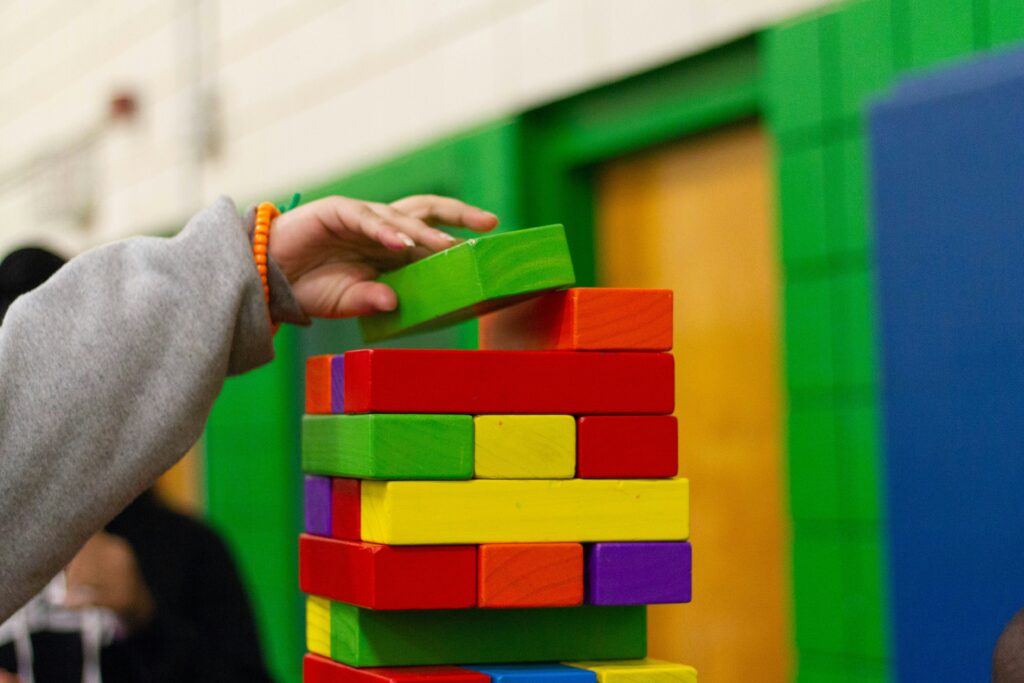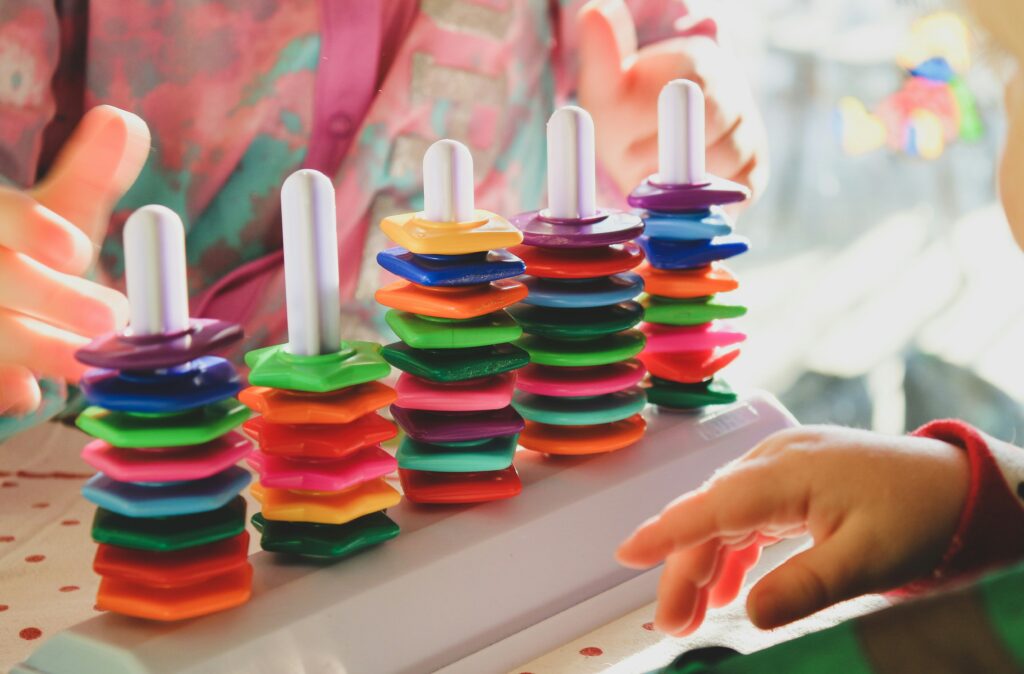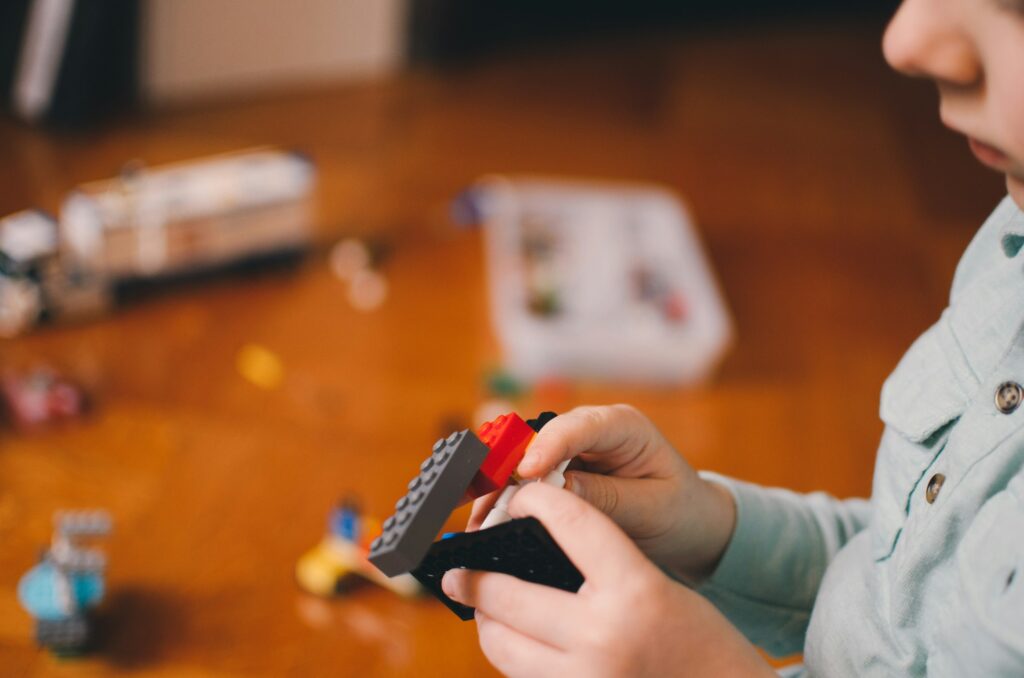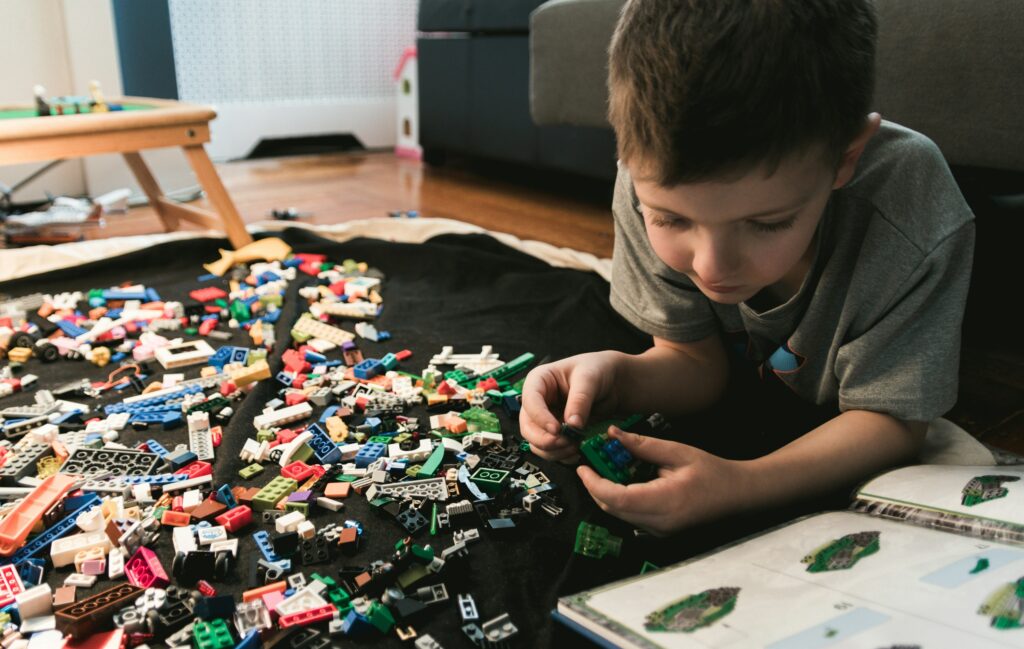Babies at seven months old are interested seekers of adventure. They want to taste and touch everything that is within their reach.
Now is the ideal moment to introduce sensory play. Your 7-month-old can learn and grow while having fun when you engage in sensory activities with them at home.
Let’s explore the top ten easy sensory activities for 7-month-old at home, the definition of sensory play, and its advantages.
What is Sensory Play?
Activities that engage a baby’s senses, sight, hearing, touch, taste, and smell are referred to as sensory play.
It involves playing with movements, sounds, and textures. These activities help babies make sense of the world around them by using their developing skills.
Playing with common objects is a simple way to engage in sensory play at home.
Your infant learns through exploration, whether it’s by touching soft materials or hearing jingling keys.

Why Sensory Play is Important for 7-Month-Old Babies
In the first year of life, a baby’s brain develops quickly. By forming new connections in their brains, sensory play promotes this development.
Babies start to grasp cause and effect, identify patterns, and develop hand-eye coordination at seven months.
Providing your 7-month-old with sensory activities at home aids in their mental, physical, and emotional development.
Additionally, sensory play fosters independence and improves motor skills.
Benefits of Sensory Activities for Parents and Babies
Both parents and infants benefit from sensory activities. Here’s how:
- Boosts Baby’s Development: Using the senses promotes creativity, learning, and problem-solving.
- Strengthens Parent-Baby Bond: These activities produce priceless opportunities for mutual learning.
- Encourages Calmness: Babies can relax by playing with calming sounds or textures.
- Cost-Effective: You can use things you already have at home to complete most sensory activities.
Not only does scheduling sensory play benefit your infant, but it can also make you happy and reduce stress.
Top 10 Easy Sensory Activities For 7-Month-Old At Home (2025)
Here is a list of enjoyable, secure, and simple sensory activities that a 7-month-old can do at home:

1. Tummy Time with Textures
Place your infant on a blanket with soft materials, silky scarves, or crinkly toys all around. Urge them to investigate the various textures by touching them.
In addition to strengthening their muscles during tummy time, this activity aids in the development of their tactile sense.
2. Water Play in a Bowl
Add sponges or floating toys to a shallow bowl of water. Allow your infant to feel and splash in the water.
This easy exercise is great for introducing the idea of cause and effect, enhancing hand coordination, and exploring the senses. For safety, always keep an eye on things.
3. Homemade Shakers
Fill plastic bottles with pasta, rice, or beads to make shakers safe for infants. After securing the lid firmly, let your infant shake the shakers.
Their grip strength increases, and the rattling noises and vibrations stimulate their auditory senses.
4. Edible Finger Painting
Apply baby food puree or yogurt as a safe “paint” to a sanitized surface, such as a highchair tray.
Your infant’s senses of touch and taste can be stimulated as they smear, taste, and investigate the textures.
It’s an enjoyable method to promote imagination and uncluttered experimentation.
5. Mirror Play
During playtime, place a baby-safe mirror on the ground. Babies like to move their hands, imitate facial expressions, and gaze at their reflections.
As they start to identify themselves, this activity fosters curiosity and self-awareness.
6. Cereal Box Exploration
Create a secret treasure trove out of an empty cereal box. Stuff it full of safe, soft things, like tiny blankets or baby socks.
Allow your infant to take them out and investigate. Their motor skills are enhanced, and the idea of hidden surprises is introduced.
7. Bubble Fun
Watch your baby’s awe as you blow bubbles in front of them and see how they float. To improve their hand-eye coordination, encourage them to reach for the bubbles.
Visual tracking abilities are also stimulated by the soft movement of bubbles.

8. The Sensory Bag
Put hair gel and safe, vibrant materials like glitter or beads in a strong ziplock bag. After securing the bag, allow your infant to move and squeeze the contents.
They can explore textures and develop their fine motor skills without making a mess.
9. Music Time
Sing or play calming music as you shake a rattle, clap, or dance. Babies enjoy repetition and rhythm, and these activities enhance motor coordination and rhythm awareness while stimulating the auditory senses.
10. Exploring Pots and Pans
Give your infant a wooden spoon and portable pots so they can tap and investigate sounds.
In addition to fostering auditory exploration and strengthening their grip, this easy exercise introduces them to cause and effect.
Tips to Keep Sensory Activities Interesting
- Change It Up: To keep things interesting, switch up the activities.
- Follow Your Baby’s Cues: If your infant exhibits enthusiasm or interest, continue the activity.
- Ensure Safety: Always keep an eye on sensory play, particularly when using small or breakable objects.
- Keep It Simple: Babies take pleasure in the small things. A cardboard box can be transformed into an entertaining sensory toy.
Include sensory play in your everyday activities. Ten minutes of concentrated play can have a significant impact.
Conclusion
A crucial aspect of your baby’s development is sensory play. Try these 7-month-old sensory activities at home to help your baby develop, learn, and experience new things.
These easy activities improve your relationship with your child and produce enduring memories.
Explore these concepts now, and you’ll see your baby’s curiosity grow!
FAQs About Top 10 Easy Sensory Activities For 7-Month-Old At Home (2025)
- Are sensory activities safe for 7-month-olds?
Yes, as long as you supervise your baby and use age-appropriate, non-toxic materials. Always monitor them during activities, especially with small objects or water.
- How much time should I spend on sensory play daily?
Start with 10–15 minutes a day. Babies can easily get overstimulated, so short and focused sessions work best.
- Do I need special toys for sensory activities?
No. You can use everyday household items like pots, pans, soft fabrics, or plastic bottles filled with rice to create sensory experiences.
- What are the benefits of sensory play for parents?
Sensory play can reduce parental stress, increase joy, and create cherished memories. It’s also a cost-effective way to engage your baby.
- What if my baby doesn’t seem interested in sensory play?
Follow your baby’s cues. If they lose interest, try a different activity or wait for another time. Babies can have different preferences.


